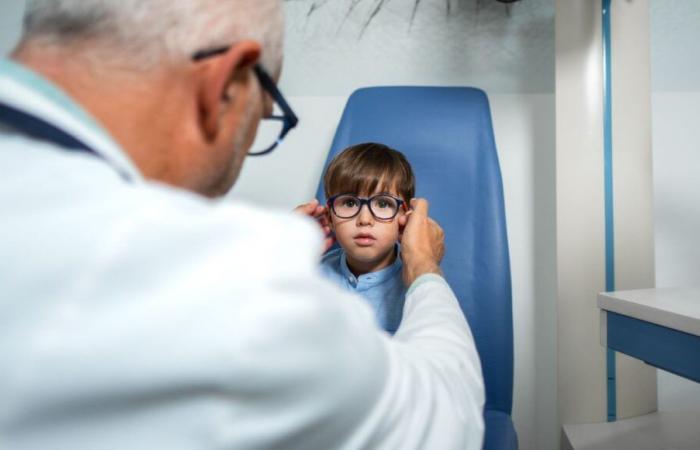Every year, myopia progresses, affecting more and more people around the world. This vision disorder, often neglected, could affect almost half of the world’s population by 2050. How can we prevent it and protect our eyes?
The national week of mobilization against myopia has just ended in France, reminding everyone of the importance of fighting this visual disorder. According to the World Health Organization, nearly 49.8% of the world’s population will be myopic in 2050. In certain Asian countries such as Singapore, the finding is already alarming: 80% of 16-24 year olds are myopic.
Myopia, which results in clear vision up close but blurry at a distance, can seem benign. However, in its strong form, it becomes a progressive pathology which weakens the eye throughout life, increasing the risk of complications such as retinal detachment, glaucoma, or even serious retinal damage which can lead to blindness.
Myopia: understanding the causes to act better
Environmental and behavioral factors
Although genetic causes play a role, so-called environmental myopia is on the rise, particularly because of our modern habits:
- Prolonged reading and intensive use of screens : Prolonged close work tires the eyes.
- Low exposure to natural light and lack of outdoor activities.
- Reduced reading distance (less than 30 cm)forcing the eye to make a constant accommodative effort.
- Prolonged exposure to screenswhose colors and brightness excessively strain the eye.
Screening signs in children
Parents have an essential role in early detection:
- Unusual visual habits : the child gets too close to the screens or squints his eyes to look away.
- Recurring symptoms : frequent headaches, eye fatigue, difficulty seeing the board in class.
- Decline in academic results unexplained.
Early detection is particularly recommended if the parents are myopic themselves.
How to prevent myopia?
Two simple tips to preserve your eyesight:
- Take regular visual breaks : Every 20 minutes, stare at a distant point for 20 seconds.
- Expose yourself to natural light : encouraging outdoor activities reduces the risks linked to prolonged visual effort.
Adopting these good practices is essential, both for children and adults. Myopia is not inevitable, but a global issue that requires collective awareness. Parents, teachers, businesses: everyone can act to limit the impact of this visual epidemic.
The advice of Dr. Gérald Kierzek
Join us every morning at 8:50 a.m. The advice of Dr. Kierzek. From managing our stress to our nutrition or even our sleep, he provides you with good advice on every aspect of our daily life.
You can also find this column replayed on the HERE app and the Radio France app.
Health






